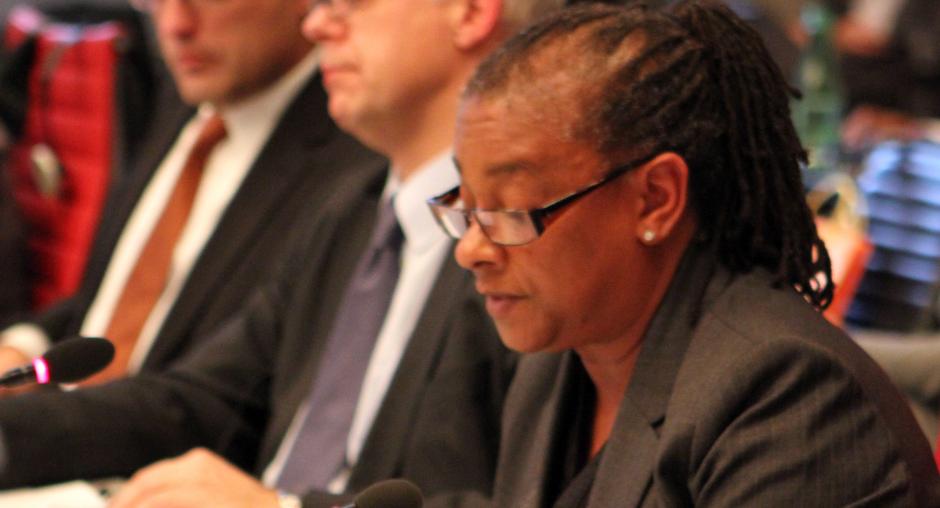OSCE meeting on preventing racism and hate crimes begins with calls for greater efforts to combat intolerance

VIENNA, 10 November 2011 – A two-day OSCE meeting aimed at identifying ways to prevent racism, xenophobia and hate crimes began today with calls for greater efforts to combat hatred and intolerance.
The meeting, organized by the Lithuanian OSCE Chairmanship 2011 and the OSCE Office for Democratic Institutions and Human Rights (ODIHR), focuses on education and awareness-raising. It will review implementation of OSCE commitments, examine contemporary forms of racist and xenophobic intolerance and hate crimes and will provide an opportunity to review good practices of participating States, international organizations and civil society actors in this area.
Ambassador Janez Lenarčič, the Director of ODIHR, said that racist sentiments and behaviour continue to threaten social stability across the OSCE region: “Contemporary manifestations of racism, xenophobia and hate crimes are, for some minority communities, a daily reality.”
He noted that failure to prevent hate crimes can lead to social tensions and conflicts with the potential of degenerating into broader ethnic-based violence.
Effective prevention strategies must include educational and awareness-raising initiatives, he said, stressing that such measures must be compatible with the right to freedom of expression.
“Education and awareness-raising initiatives are particularly powerful tools in combating racism and intolerance,” said Ambassador Renatas Norkus of Lithuania, the Chairperson of the OSCE’s Permanent Council.
He underlined that actions in this field need to foster an appreciation of cultural, religious and ethnic diversity.
“Initiatives to combat racism and xenophobia are more effective if a broad range of actors are involved in the process, including public officials at the national and local levels, civil society, church and religious leaders, and sport or music celebrities,” Norkus said.
He added that the Lithuanian Chairmanship is seeking to build consensus for the adoption of a decision on countering manifestations of intolerance in the public discourse at the Ministerial Council meeting in Vilnius in December.
In a keynote address, the prominent British human rights activist Doreen Lawrence described how the racially-motivated murder of her son in 1993 led to major changes in the United Kingdom’s justice and law enforcement system. After the initial investigation had produced five suspects but no conviction, her tireless efforts contributed to the launch of a judicial inquiry which concluded that the initial investigation was flawed as a result of institutional racism and other factors. The inquiry report set out seventy recommendations which have served as a basis for efforts to eliminate racial prejudice and increase fairness in policing and the criminal justice sector.
In recognition of 2011 being the International Year for People of African Descent, ODIHR organized a side event on racism and xenophobia affecting people of African descent in the OSCE region.
